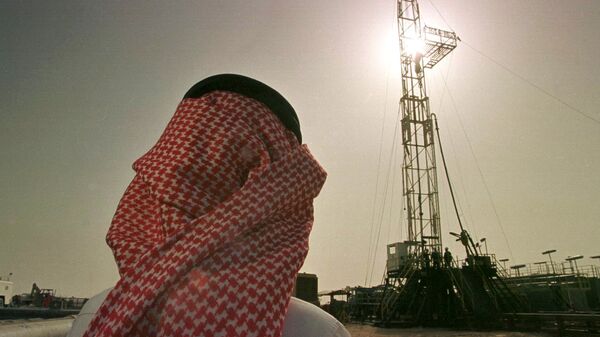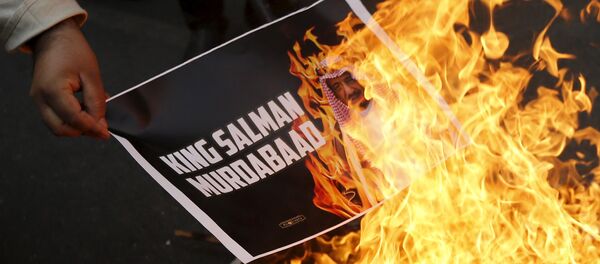Relations between the leading Sunni and Shiite nations had never been warm, but the latest incident, which some believe was provoked by Riyadh, has brought tensions to a new low.
According to Jokar, the ongoing confrontation is the result of Saudi fears, who feel threatened by the rise of Iran.
First, Riyadh fears that sanctions against Iran will soon be removed, bringing a lot of positive international attention and boost to Tehran, the analyst explained.
Current Saudi policies directed against Tehran and Shiites in general show Riyadh's attempts to counter the changing geopolitical shift in the Middle East which favors Iran.
"Iran would restore its role and its natural position in the region, surpassing Saudi Arabia in population, area and natural resources," Jokar told Sputnik France.
The factor of economy is another reason behind Riyadh's anti-Iranian move, Jokar said.
While the Saudis threaten peace in the entire Middle East by provoking Iran, Tehran has not sought this confrontation, Iranian Foreign Minister Javad Zarif said in a letter addressed to UN Secretary-General Ban Ki Moon.
"We have no desire or interest in escalation of tensions in our neighborhood," Zarif said in a letter, as cited by AFP.
At the same time, the Iranian top diplomat added that most members of al-Qaeda, the Taliban, Daesh (Islamic State), al-Nusra Front are Saudi citizens or people who have been brainwashed into extremist ideology using Saudi oil money.
Riyadh said around 2,500 Saudi citizens joined terrorist organizations in Syria and Iraq, constituting one of the largest groups of foreign recruits, according to Reuters.




